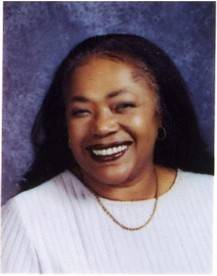The foundation of this writer’s philosophy of teaching is predicated on one simple belief, which is that all children can learn. When I write for my audience it is another way of imparting information and affecting a child’s life.
From this concept springs all other aspects pertaining to this philosophy. A secondary theorem is that all learning springs from a desire to develop understanding of the world, and it is the responsibility of the teacher to nurture this desire within her/his charges. As a teacher and writer I create a world where children can reach out and test the limits of their imagination in safety.
Good teaching is primarily based on the premise that every student can learn, show concern for one another, and choose to act responsibly in the classroom. As an author I allow the child to take their classroom with them. They carry it with them in their backpack. They survey it under the covers, flashlight in hand, as they read in the dark of night.
The purpose of teaching is to provide a positive environment where all students can learn and the purpose of my writing is to construct a positive universe for the children who read my books.
Self-control, respect, cooperation and individual responsibility are the foundation of teaching, and as such, is one of the most important factors for the transfer of learning and future academic success. Students develop abilities and incorporate knowledge through their interactions with texts, other people, and their own critical reflections and insights. My writing is designed to mirror those reflections and insights.
This growing cognition and these attributes are necessarily mitigated according to the students’ background, values, needs, and desires.
To teach is to inspire, to motivate, to protect, and to serve the new generation. It is a commitment to the improvement of life and to the human condition. To teach is to accept the difficulty of the job, knowing that one can never be fully prepared for the experience. (When experienced teachers were asked if their college methods courses truly prepared them for what they are actually teaching today, virtually all said “no”.)
The role of teacher is closely related to the theories and views of Dr. Albert Ellis, but also incorporates the work of Dr. William Glasser, Dr. Carl Rogers, and Dr. Thomas Gordon. As such, the teaching method employed is one of teaching by example. Thus the teacher’s role is one of demonstrating appropriate behavior, providing strategies for the students to solve their problems, and pointing out to students when their behavior is inappropriate. Therefore, it then becomes the responsibility of the teacher to develop rational-emotive therapeutic interventions that combine the cognitive, behavioral, and emotive components to teach students that they can effectively combat their own uncomfortable feelings and develop discipline and self-control.
To be a teacher requires a large investment in time, energy, and money. It requires a deep commitment, a multitude of talents, and a full measure of patience. Anyone who directs the learning of others knows that it can be rewarding, but also constantly demanding. Teaching is the wisdom to be able to say the right thing at the right time so a child’s self esteem and self-image is not dashed to bits in moments of confusion. Teaching is a natural outgrowth of a commitment to children, to life and to the search for truth. Teaching is an additional way to contribute to posterity. To teach is to put into reality the values, beliefs, and knowledge that are central to one’s very being.
